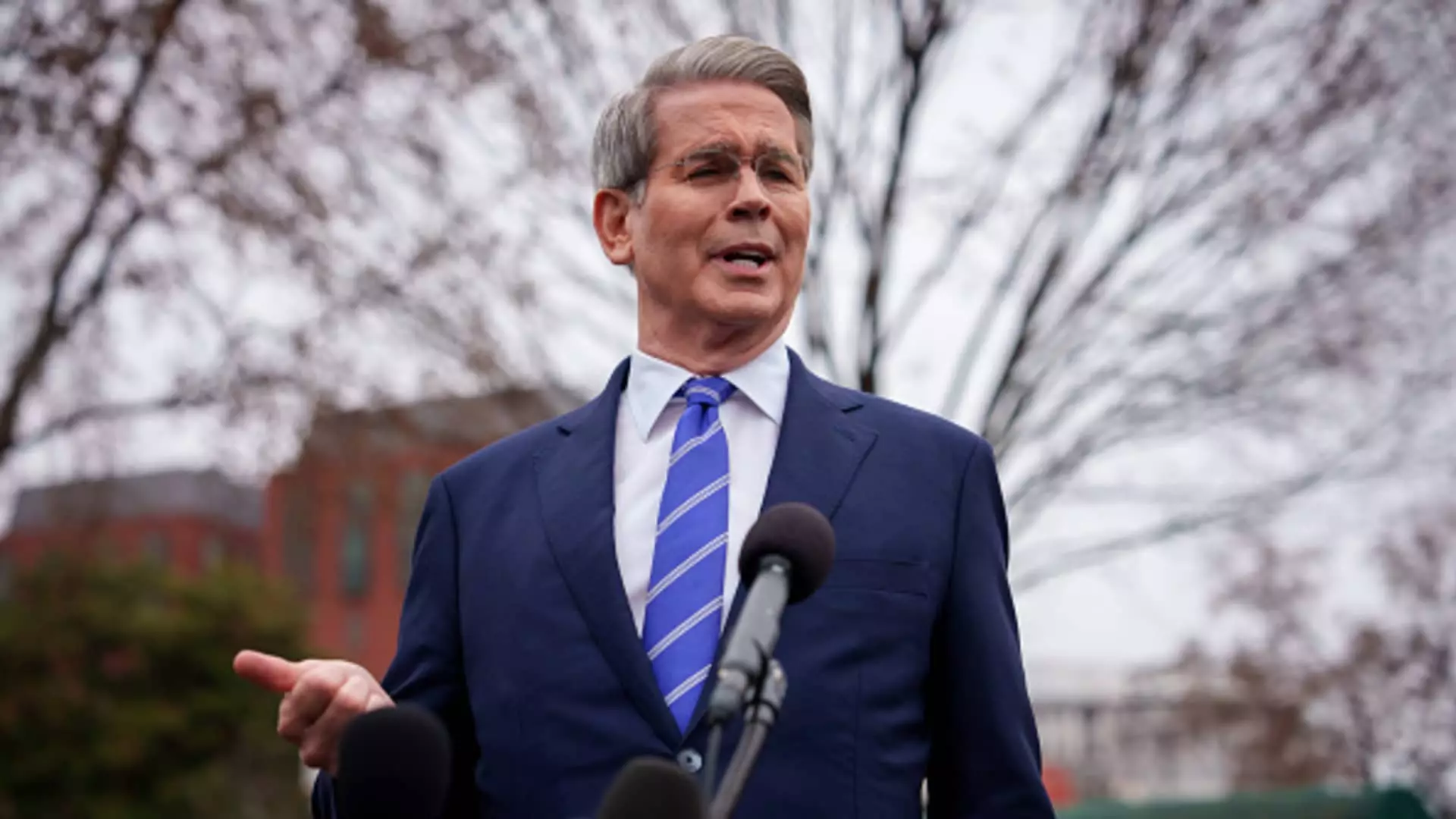The recent downturn of the technology sector has left investors in a state of anxiety, and rightly so. Treasury Secretary Scott Bessent’s remarks have raised eyebrows, particularly in regard to his claim that the sharp sell-off is primarily driven by the performance of the so-called “Magnificent 7” tech stocks — a term that encapsulates giants like Apple, Amazon, and Microsoft. Yet, his dismissal of the Trump administration’s protectionist tariffs as mere background noise is not just misleading; it is dangerously simplistic. The complexities of market behavior are not easily boiled down to singular events or explanations.
Bessent pointed to the emergence of DeepSeek, a Chinese AI startup, alleging that its disruptive products sparked the significant decline, particularly in the Nasdaq index. While it’s true that technological advancements can shift investor sentiment, it cannot be ignored that the larger economic context—namely, Trump’s aggressive tariffs—exacerbated existing tensions in the market. This convoluted interplay between policy and market dynamics poses questions we must explore further: Is the government’s role in influencing market perception being underestimated?
The Tariff Elephant in the Room
Trump’s tariffs, labeled as “reciprocal,” were launched with the intention of protecting American industries but have instead sent shockwaves through the investment landscape. Many analysts have pointed to these tariffs as a direct contributor to heightened inflation concerns and a throttling of economic growth. Yet, Secretary Bessent’s assertion dismisses these fears as mere side effects, ignoring their real implications on investor sentiment.
The market’s brief foray into correction territory can be linked to both a decline in tech stocks and the tariff rollout; failing to acknowledge this duality is detrimental. Economic theories have long posited that investor fears can manifest quicker than economic realities, and this situation illustrates that perfectly. Market psychology often reacts not to what is, but to what is perceived could be, a notion that should not be taken lightly.
Staggering Losses and Investor Sentiment
As the S&P 500 futures plummeted and the Dow Jones Industrial Average took a significant hit, investors were not merely responding to the immediate financial numbers but to a larger narrative. One marked by uncertainty. The mention of a 10% correction might seem trivial by market standards; however, the psychological impact of such losses can be staggering, leading to widespread distrust in market stability.
Bessent’s claim that “it’s going to be fine if we put the best economic conditions in place” overlooks the anxiety that tariffs and international tensions breed. Such statements sound almost naive when we factor in the reality of globalized markets and interconnected economies. The false security of stability can crumble faster than one realizes, particularly when under the weight of an unpredictable administration.
What Happened to Free Market Ideals?
The narrative surrounding DeepSeek and its technological edge serves as a fascinating case study in market disruptions. However, it raises further questions about the underpinning principles of fairness and equity in global trade. By failing to adapt to fast-changing realities brought on by tariffs, U.S. tech companies risk losing their competitive edge, thus further widening the gap in a race marred by political posturing rather than genuine economic strategies.
In what world do we defend protectionism while claiming to uphold the values of a free market? The convoluted relationship between technology, policy, and market performance warrants a closer examination rather than casual dismissal. Critics like Bessent might find comfort in their positions of power, but the marketplace tells a story of disruption that cannot be ignored. If the U.S. wishes to remain a leader in technology and innovation, it must re-evaluate the implications of its trade policies. The time for introspection and change is now, before the rhetoric ignites a deeper crisis.

